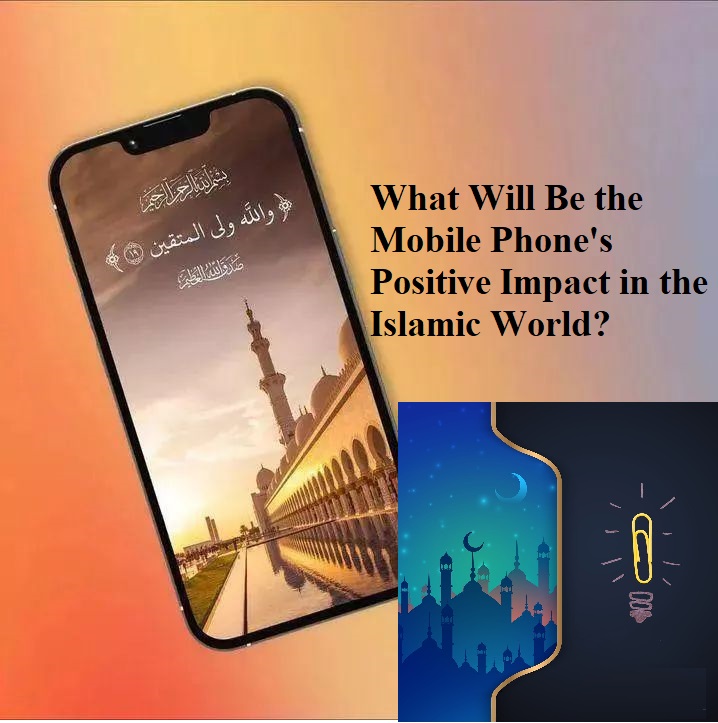1. Introduction
The mobile phone revolution has transformed societies globally, and its influence is becoming increasingly significant in the Islamic world. With growing smartphone penetration, mobile devices have begun to play an important role in daily life, shaping communication, education, commerce, and religious practices. This article explores the positive impacts of mobile phones in the Islamic world and how they are driving social, economic, and cultural development.
2. Improving Communication Across Communities
Mobile phones have made communication easier and more accessible across the Islamic world, connecting people within countries and internationally. From family calls to business meetings, mobile devices provide a platform for instant connectivity, bridging geographic barriers. This is especially beneficial in remote areas, where traditional communication infrastructures are limited. Mobile phones allow people to stay connected with loved ones, businesses, and religious communities.
3. Educational Opportunities and Religious Learning
Mobile phones are expanding educational access by offering online learning platforms, apps, and virtual classes. In the Islamic world, this has provided an avenue for both secular and religious education. Mobile apps like Quran study tools, Islamic learning platforms, and language learning programs allow Muslims to learn and enhance their knowledge of the faith from any location. This technological shift has made religious learning more accessible than ever before.
4. Boosting Economic Growth and E-commerce
The rise of mobile phones has led to economic growth by encouraging entrepreneurship and e-commerce. Mobile platforms have allowed many businesses to shift online, providing opportunities for Islamic businesses to expand their reach. Entrepreneurs can now sell goods and services through mobile apps, online markets, and social media platforms. This has led to a boost in trade and the creation of jobs across various sectors, improving the economic landscape of many Islamic countries.
5. Strengthening Social Connections and Family Ties
In Islamic culture, family bonds and social ties are highly valued. Mobile phones help strengthen these connections by allowing families to stay in touch through video calls, social media, and messaging apps. This is particularly important for Muslim communities where family members may live far apart, such as overseas workers or those migrating for better opportunities. Mobile devices allow family members to share life’s moments and support each other.
6. Spreading Islamic Teachings and Awareness
Mobile phones have made it easier to spread Islamic teachings and religious awareness. Islamic scholars and religious leaders can now use social media, apps, and websites to share teachings, sermons, and religious guidance with a wider audience. This fosters a deeper understanding of Islam and allows Muslims to follow religious practices more easily. Apps that provide prayer times, Qibla directions, and reminders for fasting and charity contribute to enhancing religious life.
7. Access to Health and Social Services
In many Islamic countries, access to health care and social services is a challenge, especially in rural areas. Mobile phones can be used to deliver health services, such as consultations, medical reminders, and health education through mobile health (mHealth) initiatives. Mobile phones also play a role in coordinating charity efforts, connecting people in need with resources during emergencies like natural disasters or pandemics.
8. Enhancing Women's Empowerment and Inclusion
Mobile phones are helping to empower women in Islamic countries by providing access to education, information, and business opportunities. Women who may not have the freedom to travel or work outside the home can use mobile devices to start businesses, access online courses, and engage in social causes. This digital inclusion is helping to improve gender equality by offering women more autonomy and opportunities for economic and social participation.
9. Promoting Social Justice and Humanitarian Causes
Mobile phones are a powerful tool for promoting social justice and humanitarian causes in the Islamic world. Activists and charitable organizations can use mobile platforms to raise awareness about important issues such as poverty, education, human rights, and conflict resolution. Mobile devices allow for the swift dissemination of information, enabling individuals to mobilize and support social justice movements and charity efforts effectively.
10. Encouraging Civic Engagement and Political Participation
In many Islamic countries, mobile phones have opened new avenues for civic engagement and political participation. Through mobile apps and social media, citizens can stay informed about national issues, elections, and policy changes. This leads to increased political awareness and participation, empowering individuals to engage in discussions that shape their communities and governments. It also helps Muslim-majority countries strengthen democratic values by allowing citizens to express their opinions and hold leaders accountable.
11. Conclusion
The positive impact of mobile phones in the Islamic world cannot be understated. From improving communication and fostering religious learning to boosting economic growth and empowering women, mobile technology is a transformative force. As mobile phone usage continues to rise, it will likely play an even more significant role in shaping the future of Muslim societies.
